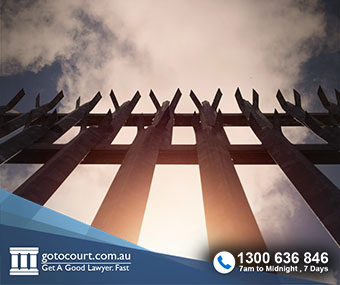Can An Ex-Spouse Contest A Will? (NSW)
Only a few categories of people can legally contest a deceased’s will in New South Wales. Unsurprisingly, the deceased’s spouse and children have the primary right to claim fair provision from the deceased estate. Some people are surprised to find that a former spouse also has the right to contest an unfair will. In NSW, this provision applies to both former married and de facto partners. This article explains how an ex-spouse can contest a will in NSW, with reference to relevant case law.
The Effect Of Separation And Divorce On A Will
Most couples appoint their spouse as the main beneficiary of their estate. There is no automatic change to testamentary arrangements when a couple separates in NSW. This means that if a testator separates from their spouse and dies without updating their will, their spouse has a legal right to inherit according to the current will. However, once a couple officially divorces, there is an automatic legal impact on a testator’s will. A divorce revokes any bequest for the former spouse in the will and negates any appointment of the spouse as executor, guardian or trustee. The only exception to this rule is if the testator explicitly states that the provision in their will stands regardless of any divorce proceeding.
Can An Ex-Spouse Contest A Will In NSW?
A deceased may feel that their obligation to their spouse ends when their divorce is finalised, but this is not always true. An ex-spouse is eligible under the Succession Act 2006 to contest a testator’s will. A former de facto partner is also eligible to contest a will if they lived in the same household as the testator at any point and were financially dependent on the deceased.
However, just because an ex-spouse is eligible to make a claim does not mean they will ultimately receive provision from the deceased estate. The court considers whether the former spouse has a moral right to any (or further) provision from the deceased’s will. Each claim is assessed on the specific circumstances of the case.
How Does The Court Assess An Ex-Spouse’s Claim?
The Supreme Court assesses an ex-spouse’s claim with regard to the length of the marriage, any contribution that the ex-spouse made to the deceased estate and the ex-spouse’s own financial and personal circumstances. The court will particularly take notice of any evidence of the deceased’s testamentary intentions towards their ex-spouse.
In the past, the NSW Supreme Court has shown a greater willingness to recognise an ex-spouse’s claim if they were in an ongoing relationship with the deceased. For instance, the Supreme Court in Milewski v Holben [2014] held that the plaintiff was entitled to provision partly because she had maintained a relationship with her ex-spouse and he had professed an intention to make testamentary provision for her in his will.
The court has also looked favourably on an ex-spouse’s claim when there was no official property settlement at the end of the marriage. In Scott v Scott [2009], the court found that the claimant was entitled to provision even though she lived apart from her former husband because there had been no final division of assets at the time of the divorce. The court is less likely to be receptive to a claim from an ex-spouse where there was a full and fair division of assets at the end of the relationship, and the parties subsequently kept their finances separate. When a couple has fully separated their finances, it is difficult for the claimant to prove that they were financially dependent on their ex-spouse.
The Supreme Court underscored this point in a more recent case, Stockwell v Beaumont; O’Donnell v Beaumont [2019]. In this case, the claimant remained on excellent terms with her ex-spouse, and they were considering reconciliation before the testator’s death. The former couple never fully separated their finances, and the claimant successfully asserted that she was financially dependent on the deceased at the time of his death. In that case, the court noted that an ex-spouse has little prospect of claiming from a deceased estate unless they were receiving financial support from the deceased before they passed away. The court awarded the plaintiff, in this case, half of the estate.
In NSW, an ex-spouse must proceed swiftly with a claim, as the deadline to file a Family Provision is 12 months after the deceased’s death. Go To Court Lawyers can help if you believe that you have been unfairly provided for in your ex-spouse’s will. The team can answer any questions about eligibility to claim and give you a realistic view of your chances of obtaining further provision from the estate. Call 1300 038 223 or contact our team online for helpful specialist advice.






